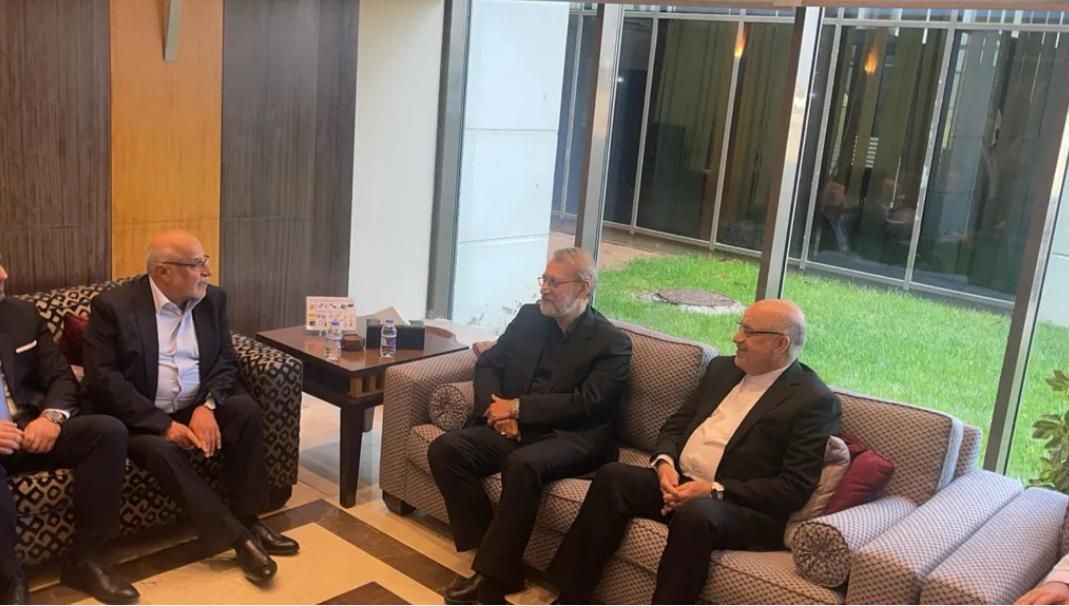
Amid heightened political tensions in Lebanon, marked by increased mobilization of Hezbollah supporters and strong reactions to the government’s decision to reserve arms exclusively for the Lebanese Armed Forces, Iran’s Supreme National Security Council Secretary, Ali Larijani, arrived in Beirut on Wednesday.
Larijani began his official visits at Baabda Palace, where he met with President Joseph Aoun. Following a 50-minute meeting, the Iranian official left without making any statements. Ali Larijani is currently meeting with Parliament Speaker Nabih Berri.
At the airport, Larijani was welcomed by a representative of the Lebanese Ministry of Foreign Affairs, members of Parliament from Hezbollah and the Amal Movement, as well as representatives of Palestinian factions. Several Hezbollah supporters had gathered “spontaneously” along the road leading to the airport, responding to calls on social media, and cheered as Larijani briefly stepped out of his car to greet them.
“We will stand by the dear Lebanese people in all circumstances,” Larijani declared from the tarmac. He stated that he seeks to “always act in the supreme interests of Lebanon.”
Khalil Hamdan, a member of the Amal Movement leadership representing Parliament Speaker Nabih Berri, welcomed the Iranian official, praising “the Islamic Republic of Iran, which has always stood by Lebanon and its people in the most difficult moments.”
Larijani’s visit comes amid widespread concern in Lebanon over what many view as Iranian interference in domestic affairs. Some political actors have called for the recent statements by Iranian officials, which criticized the Lebanese government’s decision to centralize the monopoly on arms under the state, to be withdrawn or accompanied by an apology.
Last week, the Lebanese government tasked the army with preparing a disarmament plan, under pressure from the United States and amid fears of a new large-scale Israeli offensive, months after a conflict that inflicted heavy losses on Hezbollah. The Shiite movement has condemned the government’s plan as a “grave sin” and signaled its intention to ignore the decision.
Iran, through Ali Akbar Velayati, an advisor to Supreme Leader Ali Khamenei, has openly opposed Hezbollah’s disarmament, reaffirming its financial and military support for the group since its creation. Beirut, in turn, has condemned Iran’s stance as a “blatant and unacceptable interference” in Lebanon’s internal affairs.
Larijani is also scheduled to meet Prime Minister Nawaf Salam, before attending a reception at the Iranian Embassy for Lebanese and Palestinian political and intellectual figures.
Prior to arriving in Beirut, Larijani visited Baghdad, where he signed a memorandum of understanding aimed at “coordinating security along shared borders,” according to the Iraqi Prime Minister’s office.
“The resistance [against Israel] is an integral part of the fabric of the region’s peoples,” Larijani told Iranian television, asserting that “all efforts must aim to preserve this capability.”
Iranian Ambassador to Lebanon Mojtaba Amani described the visit on X as “a pivotal moment in Lebanon’s history,” emphasizing that Larijani will meet “the main Lebanese officials as well as a selection of political and intellectual figures, to express Iran’s perspective and position on the current situation.”



Comments